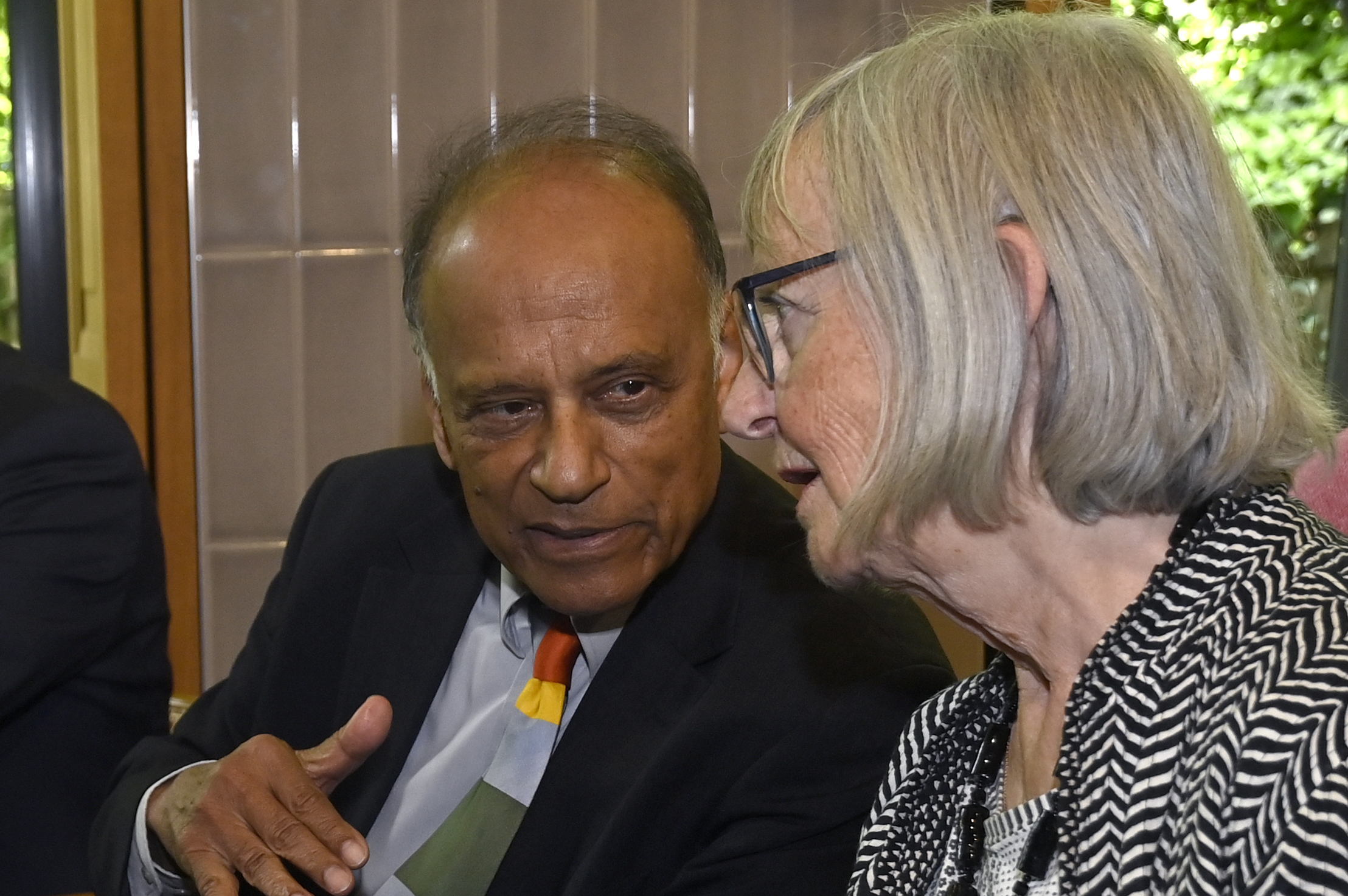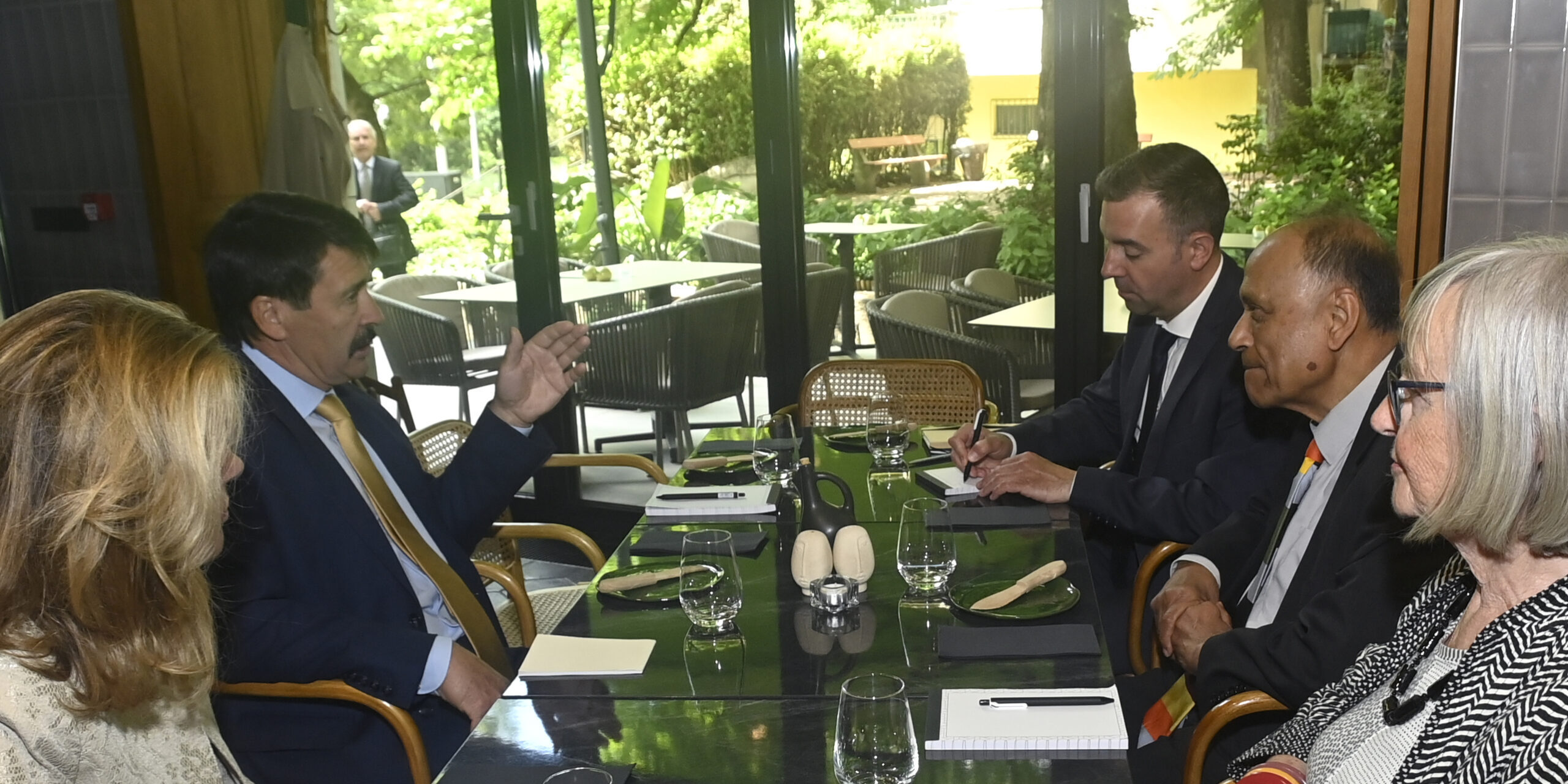Sir Partha Sarathi Dasgupta professor visits Budapest for sustainability conference and meets the Foundation
In May, at the invitation of the Research Institute for the Intergity of Creation at Pázmány Péter Catholic University (PPKE), Professor Sir Partha Sarathi Dasgupta visited Hungary. The editor and main author of the book The Economics of Biodiversity: The Dasgupta Review participated in a conference held on May 8–9, which marked the launch of the volume’s Hungarian edition.
On the second day of the conference, Csaba Kőrösi, Strategic Director of the Blue Planet Climate Protection Foundation, emphasized in his opening remarks that in times of geopolitical turbulence – which also threatens the achievement of sustainability goals – it is particularly important to be able to see and measure the impact of economic and political decisions on ecological systems. He stressed the need to account for the cost of ecosystem services we use and the value of the typically negative changes that occur in nature, in the “green capital.” He was interested in Professor Dasgupta’s thoughts about how a usable natural capital inventory could be created, as such an inventory would enable the identification and tracking of these changes.

Following the conference on The Economics of Biodiversity – The Dasgupta Review, János Áder, President of the Blue Planet Climate Protection Foundation, invited Professor Sir Partha Sarathi to an informal lunch with family, and in the company of Strategic Director Csaba Kőrösi.
During the meeting, they discussed several aspects of sustainability issues and what needs to be done. Professor Dasgupta expressed strong interest in the Foundation’s activities, particularly in its educational efforts (such as the Sustainability Theme Week, the sustainability school subject, and the secondary school-leaving exam on sustainability), as well as in the complex methodology developed for measuring the sustainability transition. He offered to support the Foundation’s work with scientific advice.
János Áder and Sir Partha Sarathi Dasgupta also had a lengthy discussion on the relationship between sustainability and demographic trends. With the prospect of meeting again, János Áder invited Professor Dasgupta to attend the Planet Budapest educational event in 2026.
